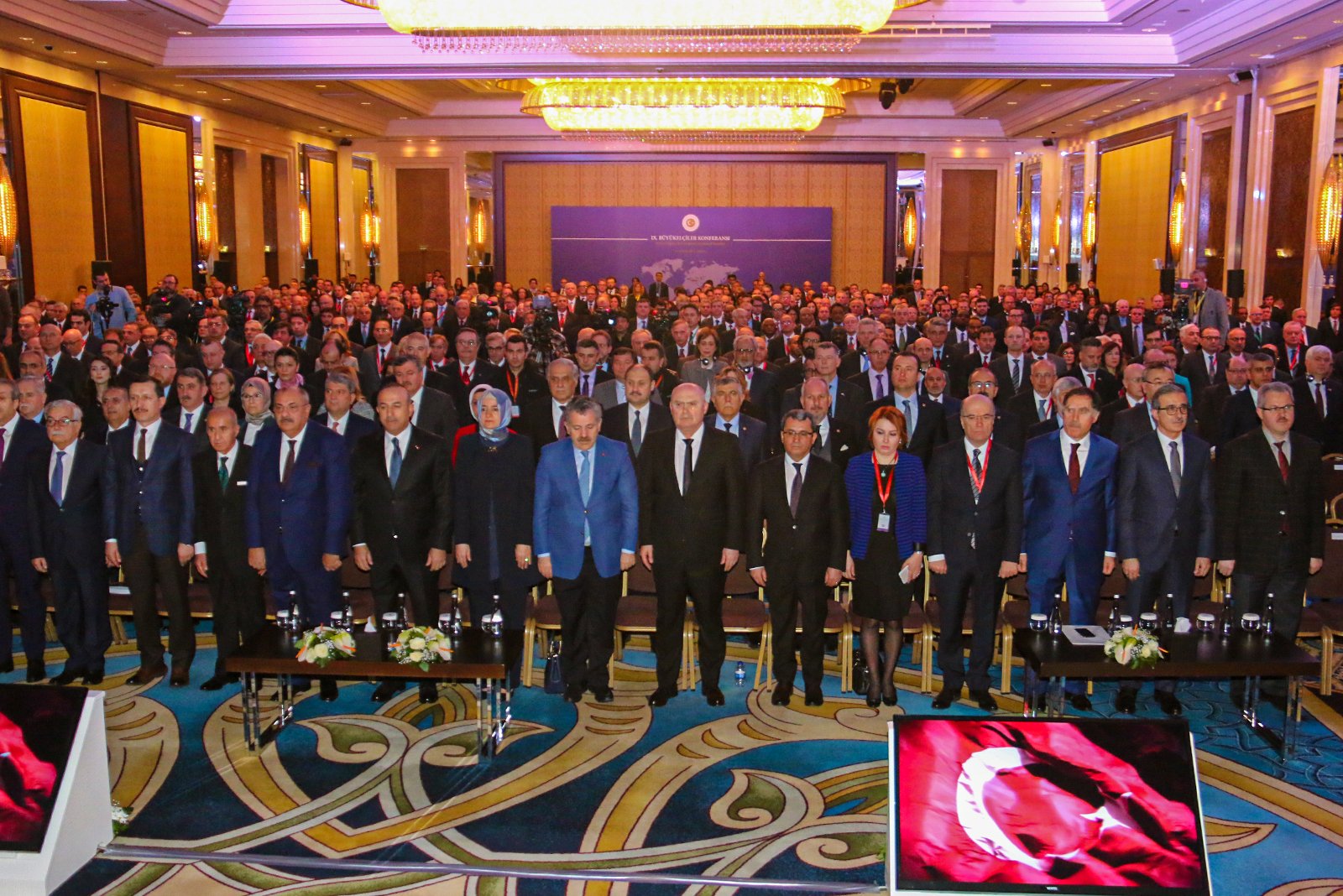A report by the Brussels-based Institute for Diplomacy and Economy (INSTITUDE) on the 122 Turkish ambassadors currently serving at Turkish embassies has revealed that their language skills are “nowhere near to the satisfactory level” to understand even Turkey’s close neighbors and are partly responsible for failures of the country’s foreign policy.
According to the report, published on Jan. 17 and which includes information on the language skills of the 122 currently serving ambassadors gathered by economist and former Turkish diplomat Ömer Güler of INSTITUDE from Turkish embassy websites and open sources, only 48 of them can speak at least one of the official languages of the countries they are posted to.
“This figure may seem high, but it is misleading,” Güler says, explaining that in 39 out of those 48 countries, the official language is either English, French, German, Italian or Spanish, which are common among the corps diplomatique.
The former diplomat said although it is widely assumed that the Turkish Foreign Ministry is full of highly capable, top-notch diplomats and ambassadors, the crises or failures occur in Turkish foreign policy because President Recep Tayyip Erdoğan sidelines the Foreign Ministry in the decision-making process, adding that the structural problems of the Turkish Foreign Ministry have made it easier for Erdoğan to derail Turkish foreign policy.
The nine countries where ambassadors speak relatively rare local languages are China, Ukraine, Russia, Sudan, Libya, Qatar, Kyrgyzstan, Iran and the Netherlands, the report shows.
Güler says one of the countries among the nine where the official language is hard to learn is China and that there’s only one ambassador, not a career diplomat but a political appointee, who can speak Chinese, but at an intermediate, not professional, level.
According to the report, although ambassadors in Qatar, Sudan and Libya stated in their resumes that they could speak Arabic, those in Sudan and Libya are not at a professional level and all three of them are political appointees.
“It’s shocking to see that there is not any single career ambassador in the Turkish Foreign Service who can speak Arabic even at the elementary level,” Güler notes.
The dataset collected by Güler further shows that there are no ambassadors among the 122 who can speak Japanese, Korean, Urdu, Pashtun, Portuguese, Greek, Armenian or Hebrew, among other languages.
“As stated above, the dataset covers only currently serving 122 ambassadors. But thanks to my professional experience at the Turkish Foreign Ministry for six years, I state without doubt that this dataset depicts truly the general language skills of the Turkish Foreign Ministry,” Güler says.
He adds that the language skills of Turkey’s diplomats is “staggeringly insufficient” compared to the UK, the US, Germany, France and Russia and that it is a shame for the Turkish Foreign Ministry that it cannot post a Greek-speaking ambassador to Greece, an Arabic speaking ambassador to Iraq or a Russian speaking ambassador to Russia.
Güler concludes the report by saying that putting all the blame on Erdoğan for the many failures of Turkish foreign policy so far would be “too simplistic” and that the Turkish Foreign Ministry’s inability to draw a thorough picture of the current trends in international politics should also be noted.



